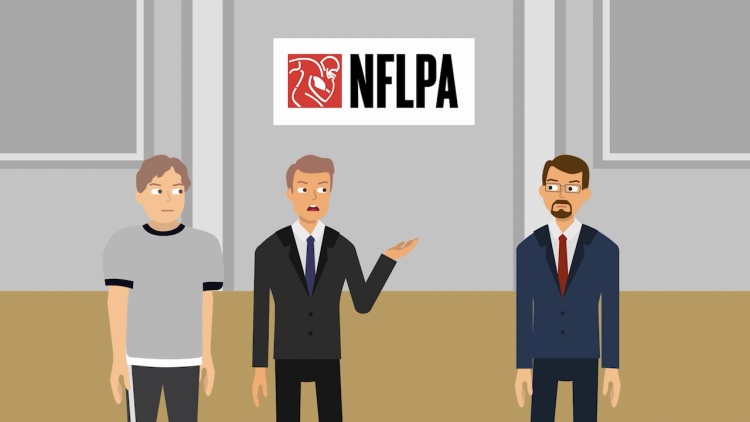Peterson v. Kennedy and NFLPA
United States Court of Appeals for the Ninth Circuit
771 F.2d 1244 (1985)
- Written by Craig Conway, LLM
Facts
Tampa Bay Buccaneers football player James Peterson (plaintiff) had one-year contracts with the team for each of the 1976, 1977, and 1978 seasons. In addition to the standard language in the contract which provided payment of salary if Peterson became injured during the season, Peterson’s contract contained an additional clause which entitled him to his salary for the 1977 and 1978 seasons if he were unable to play due to injury in a previous season. After Peterson missed the majority of the 1976 season due to a knee injury, he was cut from the team during the summer of 1977. Subsequently, Peterson’s agent spoke to National Football League Players Association (NFLPA) (defendant) representative Harold Kennedy (defendant) regarding the collection of salary for Peterson’s 1977 and 1978 seasons. Kennedy wrongly told the agent to file a grievance under the “injury grievance procedure.” By the time the grievance had been correctly routed under the “non-injury” grievance procedure, Peterson’s petition was time-barred and denied. Thereafter, Peterson brought suit against the NFLPA and Kennedy for breach of a duty of fair representation by erroneously advising him to file an injury grievance and then failing to timely correct the issue. A jury in the district court found for Peterson, but the judge granted the NFLPA’s judgment notwithstanding the verdict (JNOV) on the ground that mere negligence did not constitute unfair representation under the National Labor Relations Act. Peterson appealed.
Rule of Law
Issue
Holding and Reasoning (Reinhardt, J.)
What to do next…
Here's why 907,000 law students have relied on our case briefs:
- Written by law professors and practitioners, not other law students. 47,100 briefs, keyed to 996 casebooks. Top-notch customer support.
- The right amount of information, includes the facts, issues, rule of law, holding and reasoning, and any concurrences and dissents.
- Access in your classes, works on your mobile and tablet. Massive library of related video lessons and high quality multiple-choice questions.
- Easy to use, uniform format for every case brief. Written in plain English, not in legalese. Our briefs summarize and simplify; they don’t just repeat the court’s language.





